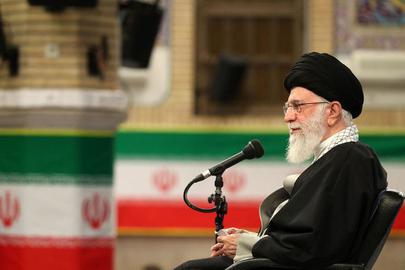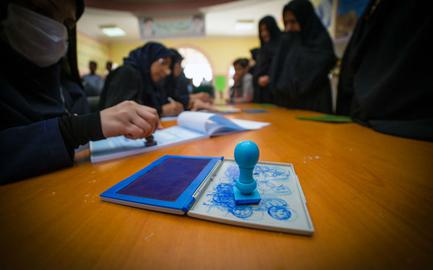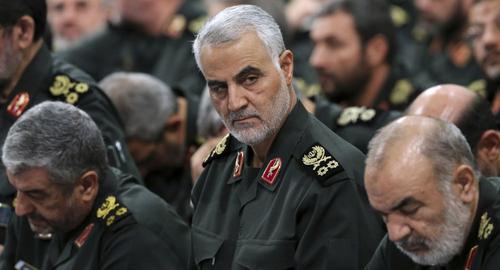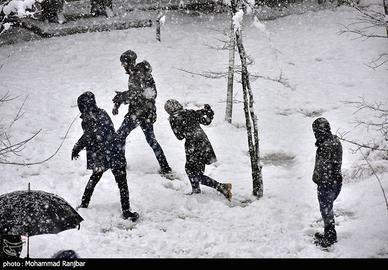In a public speech on February 5, Ayatollah Khamenei urged the Iranian people to participate in the upcoming legislative elections, which will be held on February 21. “Some people may dislike me, but if they love Iran, they must go to the ballot box,” he told them.
Khamenei made this statement at a time of increased public dissatisfaction with the Iranian regime, and after many Iranian activists and personalities had announced that they would not take part in the upcoming elections, which they described as unfair and unfree. In the Islamic Republic of Iran, the Guardian Council, a 12-member government body whose members are directly or indirectly appointed by the Leader, must vet all legislative candidates. The council does not allow opponents of the Iranian regime to present their candidacy. This year, the Guardian Council has even disqualified an unprecedented proportion of reformist candidates, including the great majority of President Rouhani’s supporters.
Yet, in his recent address, the Leader asked anyone who “loves Iran,” and even those “who lack religious or revolutionary motives” to cast votes for the sake of the “dear fatherland.” He added that despite the country’s difficulties, people would participate in the election because “it is about the prestige of the Islamic Republic and the security of the country.”
It is not the first time Ayatollah Khamenei has made such statements ahead of elections. Prior to Iran’s previous legislative elections in 2016, he said: “Even those people who do not believe in the Islamic Republic must take part in the election to safeguard the country, for the prestige of the country. No matter if some of them might disagree with me.” In another speech, however, he clarified his previous call on “people who do not believe in the Islamic Republic” to vote by emphasizing: “That comment did not mean that they [the voters] could send the opponents of the Islamic Republic to the parliament.”
It is clear that the Leader’s recent statement, like his one in 2016, indicates that he wishes opponents of the Iranian regime to take part in the election so that “the prestige” of the Iranian regime is not undermined, but he does not acknowledge the rights of these opponents to be elected or to elect whoever they prefer.
Ayatollah Khamenei’s recent stance is a clear example of how the Iranian regime aims, and has always aimed, to exploit the opponents of the Islamic Republic to reach its own political objectives.
The Specific Case of Elections
The Iranian regime’s most obvious and significant exploitation of its critics and opponents is on display at election times. The clear reason for this is that the regime has always portrayed high election turnouts as indications that the majority of Iranians approve of the Islamic Republic.
A tool the regime leaders regularly use to increase election turnout is a kind of controlled competition between the two major political factions of the Islamic Republic, namely the “reformists” and the “conservatives.” In such elections, many of the critics and even opponents of the Islamic Republic may finally decide to cast their votes against those candidates whom they view as being more hardline than their competitors. In the end, regardless of the final results, these controlled competitions have usually led to relatively high election turnouts (although there have always been real doubts about the government manipulating polling figures). However, in most elections, the Guardian Council has disqualified the majority of popular reformist candidates. In some cases, as in the upcoming parliamentary elections, the Council has not approved any reformist candidates in the majority of the constituencies.
But in such elections, too, the Leader and his appointees still try to encourage people to vote by evoking their patriotic sentiments. Ayatollah Khamenei’s February 5 address was a typical example of him desperately resorting to nationalism for this purpose, in particular when he stated: “Some people may dislike me, but if they love Iran, they must go to the ballot box.”
Playing the Nationalism Card
Evoking patriotic feelings to mobilize people behind state-run political projects is one of the most common propaganda policies used by the Islamic Republic.
A remarkable example of the application of this policy was the way the Islamic Republic propaganda machine managed to mobilize a considerable part of the Iranian public after the killing of Ghasem Soleimani, the former commander of the Quds Force. Before and after this incident, a considerable part of the propaganda created by Iran’s state-run media outlets portrayed Soleimani as a national hero who was defending the interests of the Iranian people against foreign enemies.
This propaganda was so effective that in the aftermath of Ghasem Soleimani’s death, many Iranian people, including a considerable number of the regime’s opponents, sympathized with the assassinated general, expressing these views on social media. Among those who openly mourned Soleimani’s death, and who even announced that they would attend his funeral, were critics and opponents of the Islamic Republic, critics of Tehran’s regional projects, and even certain critics of Soleimani himself who were angry that the US killed him, and about the way in which they did it.
From a wider perspective, the regional projects of the Islamic Republic have usually been one of the major areas in which the Iranian regime has managed to attract the support of certain groups of its opponents. A part of this support is due to the fact that many people perceive Iran’s presence in foreign lands to be a matter of national pride, and especially if this presence leads to military achievements. For instance, the fact that at the beginning of the Syrian civil war, the United States, the European Union, Turkey and many Arab states said that President Bashar al-Assad had to go, and yet Tehran and Moscow managed to protect his authority was an outstanding power projection in the eyes of many Iranians, including a group of those who did not agree with the Iranian regime.
The Islamic Republic propaganda apparatus also portrays the Quds Force’s presence in Syria and Iraq as a necessary measure to deter notorious Jihadi groups like ISIS. Iranian authorities’ well-known argument that “if we had not fought the terrorists in Iraq and Syria, we would have confronted them in our cities” could successfully convince some opponents of the Iranian regime to again support Iran’s extraterritorial ambitions.
Enlisting the Opponents of the Opposition
The Iranian regime has sometimes been successful in attracting certain critics of the Islamic Republic through exploiting the internal disputes of the Iranian opposition.
In fact, a number of these critics are so opposed to the activities and positions of other opposition figures that they have apparently preferred the regime to its opponents. For instance, many critics of the Iranian regime accuse other opposition figures of collaborating with the US government, which they blame for imposing devastating sanctions on the Iranian people and for planning to wage war on Iran. These critics and pro-US opponents have been permanently engaged in combating rhetoric against one another. In many areas, the critics of the opposition continue to oppose the Iranian regime as well, but in certain cases, such critics close their distance from the regime and even sympathize with the establishment.
Pro-Iranian regime and state-run media outlets always cover the disputes of these groups. These media outlets eagerly highlight when these opponents sympathize with the Islamic Republic, and sometimes portray them as reasonable critics of the Iranian government.
In the end, in particular cases, the intensification of such infighting within different opposition circles has enabled the Iranian regime to enlist new de facto supporters among its previous opponents.
visit the accountability section
In this section of Iran Wire, you can contact the officials and launch your campaign for various problems



























comments